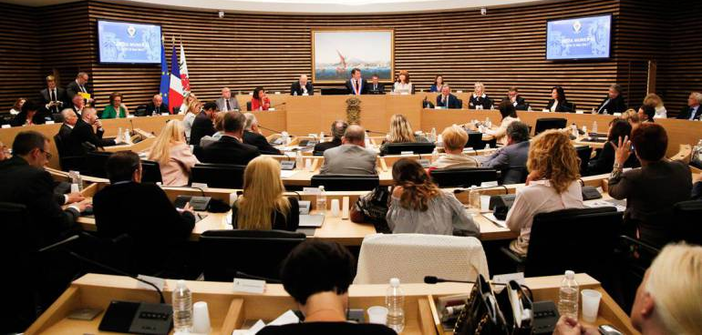That public sessions of the municipal council resemble marathons is no surprise. The novelty is the leap to the next level, the triathlon!
In fact, nearly 10 hours of session (with a meal break, we admit) requires a certain stamina, in addition to a cast-iron stomach: nearly 200 resolutions are not easily digested, especially when the rapporteurs enjoy hearing their own voices and launch into long soliloquies.
As for the conductor, he is known to have an athlete’s spirit, a relic of his glorious days. But, a fan of modernity, it seems that his “engine” recharges as he goes.
At this pace, before the next elections, candidates will need to provide a certificate of good health and ability to withstand prolonged efforts.
This session confirmed the retirement of Jean-Michel Drevet, prefect and general director of services (the head of the administrative machine). He leaves behind the memory of an exquisite person.
Taking his place is Lauriano Azinheirinha, formerly a municipal councilor and deputy for education. A surprise because, while we knew him as a promising politician, his calling for a technocratic career was unknown.
Normally, you witness a transition from the (higher) public service to the world of politics rather than the other way around.
In fact, Lauriano Azinheirinha does not completely abandon his elected position as he retains his mandate as Vice-President of the Departmental Council.
Half-technocrat, half-politician, he will have quite the challenge to carry out a dual task successfully. Of course, prefect Drevet leaves behind an administrative organization that functions like a Swiss watch if it can accommodate a part-time leader.
His position as deputy for education goes to Jean-Marc Giaume, who, in turn, transfers part of his previous delegations to Jean-Luc Gagliolo (archaeology) and Robert Roux (cinémathèque).
2016 Administrative Accounts
Presented with the usual clarity by Philippe Pradal, the accounting document shows a reassuring and positive result of 22 million euros.
Despite a difficult year in more ways than one, revenues did not slip (+2.34% compared to 2015 while inflation was 1.2%) and operating costs appear well-controlled and have improved when compared to the projected budget.
The level of investment (80 million) has soared (+34%) while the debt level remains high (nearly 500 million euros), even though it benefits from still favorable financing costs: financial charges have decreased by 8 million.
Commercial Rental of Apartments
In a region where tourism is the economic engine, the recent but already significant phenomenon of private rentals can become a devastating factor in the hotel industry.
Choosing pragmatism over making purists flee, the Nice municipality prefers regulation to pointless opposition, which would favor fraudulent practices.
Owners will have to register, receive a number, and the tourist tax (minimal, by the way) will be collected directly by the platform (like Airbnb) and transferred to the town hall.
Proximity Democracy
Saying goodbye to neighborhood councils that generated a galaxy of petty officers without significant results, except for small personal privileges.
Territorial councils, corresponding to the administrative organization, will be chaired by the deputy in charge of this sector, and the meetings will be open to all residents concerned.
Small agoras that will need to function effectively to reap benefits in terms of active participation in the life of the “polis.”
They will have small budgets for certain interventions in the territory’s neighborhoods.
Sustainable Development and Planning Project
Before the metropolitan PLU is adopted, the debate on territory management highlighted two opposing visions of the city’s future.
On one side, Christian Estrosi’s vision could be defined as “full speed ahead” to reshape the city according to international standards: infrastructures and technologies to increase a metropolis’s attractiveness in the face of increased competition.
Pan bagnat is good, the sun is great, and the sea even better, but that’s no longer enough.
On the other, the focus is on territorial balance and especially on protecting spaces.
Each defended their approach and argued well. The debate will resume before its finalization in the Metropolitan Council.
Nighttime Museum Openings
The Museums of Villa Masséna, MAMAC, and Palais Lascaris will inaugurate a summer schedule (closing at 10 PM) from July 20th to October 12th.
This deliberation was also an opportunity to highlight the good health of Nice’s museums, with attendance increasing year after year. In 2016, more than 1.6 million visitors were recorded.
Associations
The traditional “watering” of cultural, sports, and social associations could not be missed, and it was not missed.
Beyond individual cases, one day, there will be a scheme with qualitative and quantitative criteria, unless it’s a contract of objectives where we write whatever we want for the allocation of subsidies?
It’s not about filing lawsuits against this practice, even though in some cases the clientelist approach is evident.
But why not take a step forward toward objectivity and transparency?


